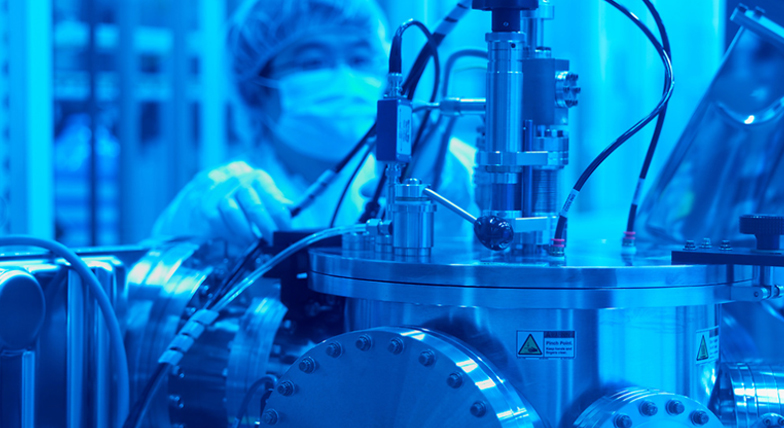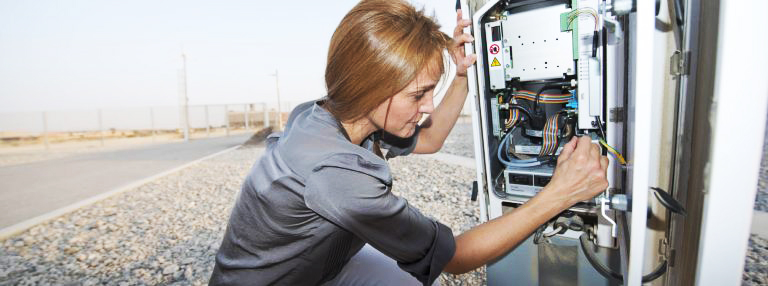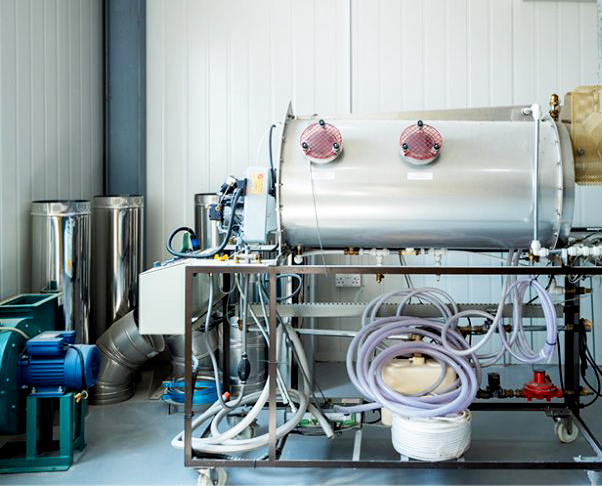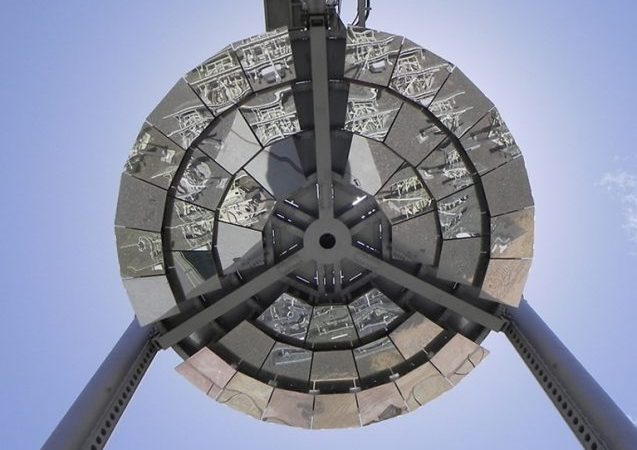
The Geomechanics Lab at Khalifa University is a pivotal research hub that focuses on problems related to subsurface geological phenomena with applications in the energy, infrastructure and environmental sector. It is one of a handful of labs in the world that are capable of performing controlled lab-scale hydraulic fracturing at reservoir conditions (up to a depth of 9 km) using a whole range of injection fluids from super-critical CO2 to glycerine using a custom built tri-axial testing device (AutoLab 3000; designed at Khalifa University and built by New England Research Inc.).
View more

The Abu Dhabi Economic Vision 2030 aims to transform the emirate of Abu Dhabi to have one of the strongest economies in the world. According to the vision, the demand for power in Abu Dhabi is among the highest in the region. Currently, this demand is met by the oil and gas sector. Abu Dhabi considers the sole dependence on fossil fuels to be an energy security issue. Therefore, in order to ensure that future energy demands are met, the leadership of Abu Dhabi is committed to have a diverse mix of power sources. Because most renewable energy sources are…
View more

The Masdar Institute Environmental Monitoring Platform (MIEMP) was established in 2015 by Masdar Institute to coordinate and streamline support for research projects related to climate, renewable energy, and the environment. MIEMP research endeavors to develop tools that can aid decision-making and help UAE adapt to a changing climate. Continuous operation of environmental monitoring stations is critical to this research. The mission of the MIEMP is to collect, validate, and make available continuous, high-quality historical records of environmental variables in the UAE, including micrometeorological and ground-based remotely sensed data from meteorological LiDAR’s (Light Detection and Ranging). MIEMP data are crucial to a…
View more

The Field Station supports outdoor experiments and serves as a living laboratory dedicated to the research and development of building technologies for high-performance buildings. It provides a controllable environment for the university’s researchers to test, demonstrate and fine-tune advanced energy systems and sustainable technologies. The technologies currently being tested include novel lighting systems that use sunlight to light the rooms, advanced cooling systems that use pre-cooling methods to reduce peak cooling loads during the day, and specialized equipment for efficient dehumidification of ventilation air. Designed 2008, completed 2012, the Masdar Institute Field Station fills three niches that traditional labs miss:
View more

The Masdar Institute Solar Platform (MISP) allows for concentrating solar power (CSP) and thermal energy storage (TES) technologies to be developed on a wider scale by providing access to high- performance CSP research and demonstration infrastructure. Initially built in 2009 as a demonstration plant by Masdar and a Japanese consortium (Tokyo Tech, Mitsui Engineering, Cosmo Oil, and Konica Minolta), the facility has been significantly modified and extended by Masdar Institute, now part of Khalifa University, in 2014 to become a user research facility also valued by industry and capable of testing large scale TES units up to 500 kWh storage…
View more

The Chemical Crystallography Laboratory (CCL) at Khalifa University is located in the Arzanah Building, SAN Campus. The CCL offers powder X-ray diffraction (PXRD) and single crystal X-ray diffraction services for determining the crystal and molecular structures of small molecules and inorganic materials. The CCL has been established by KU to serve both the KU community and collaborating institutions requiring crystallographic support. There are no service fees for the crystallographic support we provide to external collaborators, however it is an expectation of our service that the resulting crystallographic data be published in a reputable Q1 journal. The CCL is the first…
View more